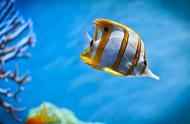I am always amazed when I hear people saying that sport creates goodwill between the nations, and that if only the common peoples of the would could meet one another at football or cricket, they would have no inclination to meet on the hattlefield. Even if one didn't know from concrete examples (the 1936 Olympic Games, for instance) that international sporting contests lead to orgies of hatred, one could deduce if from general principles.
Nearly all the sports practised nowadays are competitive. You play to win, and the game has little meaning unless you do your utmost to win. On the village green, where you pick up sides and no feeling of local patriotism is involved, it is possible to play simply for the fun and exercise: but as soon as a the question of prestige arises, as soon as you feel that you and some larger unit will be disgraced if you lose, the most savage combative instincts are aroused. Anyone who has played even in a school football match knows this. At the international level, sport is frankly mimic warfare. But the significant thing is not the behaviour of the players but the attitude of the spectators: and, behind the spectators, of the nations who work themselves into furies over these absurd contests, and seriously believe -- at any rate for short periods -- that running, jumping and kicking a ball are tests of national virtue.
当我听人们说体育运动可创造国家之间的友谊,还说各国民众若在足球场或板球场上交锋,就不愿在战场上残*的时候,我总是惊愕不已。一个人即使不能从具体的事例(例如1936年的奥林匹克运动会)了解到国际运动比赛会导致疯狂的仇恨,也可以从常理中推断出结论。
现在开展的体育运动几乎都是竞争性的。参加比赛就是为了取胜。如果不拚命去赢,比赛就没有什么意义了。 在乡间的草坪上,当你随意组成两个队,并且不涉及任何地方情绪时,那才可能是单纯的为了娱乐和锻炼而进行比赛。可是一量涉及到荣誉问题,一旦你想到你和某一团体会因为你输而丢脸时,那么最野蛮的争斗天性便会激发起来。即使是仅仅参加过学校足球赛的人也有种体会。在国际比赛中,体育简直是一场模拟战争。但是,要紧的还不是运动员的行为,而是观众的态度,以及观众身后各个国家的态度。面对着这些荒唐的比赛,参赛的各个国家会如痴如狂,甚至煞有介事地相信 -- 至少在短期内如此 -- 跑跑、跳跳、踢踢球是对一个民族品德素质的检验。
5. How to grow old 如何安度晚年
Some old people are oppressed by the fear of death. In the young there is a justification for this feeling. Young men who have reason to fear that they will be killed in battle may justifiably feel bitter in the thought that they have cheated of the best things that life has to offer. But in an old man who has known human joys and sorrows, and has achieved whatever work it was in him to do, the fear of death is somewhat abject and ignoble. The best way to overcome it -- so at least it seems to me -- is to make your interests gradually wider and more impersonal, until bit by bit the walls of the ego recede, and your life becomes increasingly merged in the universal life. An individual human existence should be like a river -- small at first, narrowly contained within its banks, and rushing passionately past boulders and over waterfalls.
Gradually the river grows wider, the banks recede, the waters flow more quietly, and in the end, without any visible break, they become merged in the sea, and painlessly lose their individual being. The man who, in old age, can see his life in this way, will not suffer from the fear of death, since the things he cares for will continue. And if, with the decay of vitality, weariness increases, the thought of rest will be not unwelcome. I should wish to die while still at work, knowing that others will carry on what I can no longer do, and content in the thought that what was possible has been done.
有些老年人因为怕死而感到烦恼。青年人有这种感觉是情有可原的。有理由害怕自己会死在战场上的年轻人,想到自己被剥夺了生活所能给予的最美好的东西时,感到痛苦,这是可以理解的。可是老年人已经饱尝了人间的甘苦,一切能做的都做了,如果怕死,就有点儿可怜又可鄙。克服怕死的最好办法 -- 至少在我看来是这样 -- 就是逐渐使自己的兴趣更加广泛,逐渐摆脱个人狭小的圈子,直到自我的围墙一点一点地倒塌下来,自己的生活慢慢地和整个宇宙的生活融合在一起。
个人的存在应该像一条河流,开始很小,被紧紧地夹在两岸中间,接着热情奔放地冲过巨石,飞下瀑布。然后河面渐渐地变宽,两岸后撤,河水流得平缓起来,最后连绵不断地汇入大海,毫无痛苦地失去了自我的存在。上了年纪的人这样看待生命,就不会有惧怕死亡的心情了,因为自己关心的一切事件都会继续下去。 再者,随着精力的衰退,老年人的疲惫会增长,有长眠的愿望未尝不是一件好事情,我希望工作到死为止,明白了有人会继续我的未竟事业,想到能做的事都做了,也就坦然了。
6. Banks and their customers 银行和顾客

When anyone opens a current account at a bank, he is lending the bank money, repayment of which he may demand at any time, either in cash or by drawing a cheque in favour of another person. Primarily, the banker-customer relationship is that of debtor and creditor -- who is which depending on whether the customer's account is in credit or is overdrawn. But, in addition to that basically simple concept, the bank and its customer owe a large number of obligations to one another. Many of these obligations can give in to problems and complications but a bank customer, unlike, say, a buyer of goods, cannot complain that the law is loaded against him.
The bank must obey its customer's instructions, and not those of anyone else. When, for example, a customer first opens an account, he instructs the bank to debit his account only in respect of cheques draw by himself. He gives the bank specimens of his signature, and there is a very firm rule that the bank has no right or authority to pay out a customer's money on a cheques on which its customer's signature has been forged. It makes no difference that the forgery may have been a very skilful one: the bank must recognize its customer's signature. For this reason there is no risk to the customer in the practice, adopted by banks, of printing the customer's name on his cheques. If this facilitates forgery, it is the bank which will lose, not the customer.
任何人在银行开一个活期账户,就等于把钱借给了银行。这笔钱他可以随时提取,提取的方式可以是取现金,也可以是开一张以他人为收款人的支票。银行与储户的关系主要是债务人和债权人的关系。究竟谁是债务人谁是债权人,要看储户是有结余还是透支。除了这一基本的简单的概念外,银行和储户彼此还需承担大量义务。其中许多义务往往引起问题和纠纷。但是储户不能像货物的买主那样来抱怨法律对自己不利。
银行必须遵照储户的嘱托办事,不能听从其他人的指令。比如,储户首次在银行开户时,嘱咐银行他的存款只能凭本世人签字的支票来提取。他把自己签名的样本交给银行,对此有一条非常严格的规定:银行没有任何权利或理由把储户的钱让伪造储户的支票取走。即使伪造得很巧妙,也不能付款,因为银行有责任辨认出其储户的签名。因此,某些银行已采用把储户印在支票上的作法。这种做法对储户毫无风险。如果因这种作法出现了伪造的话,受损失的将不是储户,而是银行。
7. Knowledge and progress 知识和进步
Why does the idea of progress loom so large in the modern world? Surely progress of a particular kind is actually taking place around us and is becoming more and more manifest. Although mankind has undergone no general improvement in intelligence or morality, it has made extraordinary progress in the accumulation of knowledge.
Knowledge began to increase as soon as the thoughts of one individual could be communicated to another by means of speech. With the invention of writing, a great advance was made, for knowledge could then be not only communicated but also stored. Libraries made education possible, and education in its turn added to libraries: the growth of knowledge followed a kind of compound interest law, which was greatly enhanced by the invention of printing. All this was comparatively slow until, with the coming of science, the tempo was suddenly raised. Then knowledge began to be accumulated according to a systematic plan. The trickle became a stream; the stream has now become a torrent. Moreover, as soon as new knowledge is acquired, it is now turned to practical account. What is called 'modern civilization' is not the result of a balanced development of all man's nature. but of accumulated knowledge applied to practical life.
The problem now facing humanity is: What is going to be done with all this knowledge? As is so often pointed out, knowledge is a two-edged weapon which can be used equally for good or evil. It is now being used indifferently for both. Could any spectacle, for instance, be more grimly whimsical than that of gunners ourselves very seriously what will happen if this twofold use of knowledge, with its ever-increasing power, continues.
为什么进步这个概念在现代世界显得如此突出?无疑是因为有一种特殊的进步实际上正在我们周围发生,而且变得越来越明显。虽然人类有智力和道德上没有得到普遍提高,但在知识积累方面却取得了巨大的进步。
人一旦能用语言同别人交流思想,知识的积累便开始了。随着书写的发明,又迈进了一大步,因为这样一来,知识不仅能交流,而且能储存了。藏书使教育成为可能,而教育反过来又丰富了藏书,因为知识的增长遵循着一种“滚雪球”的规律。印刷术的发明又大大提高了知识增长的速度。所有这些发展都比较缓慢,而随着科学的到来,增长的速度才突然加快。于是,知识便开始有系统有计划地积累起来。涓涓细流汇成小溪,小溪现已变成了奔腾的江河。而且,新知识一旦获得,便得到实际应用。所谓“现代文明”并不是人的天性平衡发展的结果,而是积累起来的知识应用到实际生活中的结果。
现在人类面临的问题是:用这些知识去做什么?正像人们常常指出的,知识是一把双刃刀,可以用于造福,也可以用来为害。人们现在正漫不经心地把知识用于这两个方面,例如:炮兵利用科学毁坏人的身体、而外科医生就在附近用科学抢救被炮兵毁坏的人体,还有什么情景比这更可怕、更怪诞的吗?我们不得不严肃地问问我们自己:随着日益增长的知识的力量,如果我们继续利用知识的这种双重性,将会发生什么样的情况呢?
8. Bird flight 鸟的飞行方法

No two sorts of birds practise quite the same sort of flight; the varieties are infinite; but two classes may be roughly seen. Any shi that crosses the Pacific is accompanied for many days by the smaller albatross, Which may keep company with the vessel for an hour without visible or more than occasional movement of wing. The currents of air that the walls of the ship direct upwards, as well as in the line of its course, are enough to give the great bird with its immense wings sufficient sustenance and progress. The albatross is the king of the gliders, the class of fliers which harness the air to their purpose, but must yield to its opposition. In the contrary school, the duck is supreme. It comes nearer to the engines with which man has 'conquered' the air, as he boasts. Duck, and like them the pigeons, are endowed with such-like muscles, that are a good part of the weight of the bird, and these will ply the short wings with such irresistible power that they can bore for long distances through an opposing gale before exhaustion follows.
Their humbler followers, such as partridges, have a like power of strong propulsion, but soon tire. You may pick them up in utter exhaustion, if wind over the sea has driven them to a long journey. The swallow shares the virtues of both schools in highest measure. It tires not, nor does it boast of its power; but belongs to the air, travelling it may be six thousand miles to and from its northern nesting home, feeding its flown young as it flies, and slipping through we no longer take omens from their flight on this side and that; and even the most superstitious villagers no longer take off their hats to the magpie and wish it good-morning.
没有任何两种鸟的飞行方式是相同的。鸟的飞行方式千差万别,但大体上可分为两类。任何一艘横度太平洋的轮船都会有一种小信天翁伴随飞行许多天。它们随船飞行一小时也难得见其扇动一下翅膀。沿船体的上升的气流和沿航线向前的气流给这种巨翼大鸟以足够的浮力和推力。信天翁是滑翔飞行的鸟类之王,它能自如地驾驭空气,但必须顺气流飞行。与滑翔鸟相对的另一类鸟中,数野鸭本领最高。它更近乎于人类自夸的“征服”了空气的发动机。野鸭及它们相似的鸽子有天赋的钢铁般的肌肉,占了体重的很大一部分。这些肌肉以巨大的力量扇动短小的翅膀,使这类鸟能顶着大风飞行很远的路才会疲劳。
次于野鸭和鸽子的鸟,如鹧鸪,有相似的巨大推动力,但很快会疲劳。如果海风驱使它们飞行很长距离,你可以捡到一些因筋疲力尽而摔下来的鹧鸪。燕子充分兼有这两类鸟的长处,它既不疲劳,也不炫耀自己的飞翔力;在空中十分自如,可以飞行6,000英里,可以飞往北方做窝的老家,再从老家飞回;一边飞一边喂养会飞的雏燕,甚至在顶风时也能在气流中滑翔,似乎气流在帮它前进。这些鸟对我们是有益的,虽然我们不再从它们的飞翔姿态来占卜吉凶,连最迷信的村民也不再对喜鹊脱帽行礼,祝它早安了。
9. Beauty 美

A young man sees a sunset and, unable to understand or to express the emotion that it rouses in him, concludes that it must be the gateway to world that lies beyond. It is difficult for any of us in moments of intense aesthetic experience to resist the suggestion that we are catching a glimpse of a light that shines down to us from a different realm of existence, different and, because the experience is intensely moving, in some way higher. And, though the gleams blind and dazzle, yet do they convey a hint of beauty and serenity greater than we have known or imagined. Greater too than we can describe; for language, which was invented to convey the meanings of this world, cannot readily be fitted to the uses of another.
That all great has this power of suggesting a world beyond is undeniable. In some moods, Nature shares it. There is no sky in June so blue that it does not point forward to a bluer, no sunset so beautiful that it does not waken the vision of a greater beauty, a vision which passes before it is fully glimpsed, and in passing leaves and indefinable longing and regret. But, if this world is not merely a bad joke, life a vulgar flare amid the cool radiance of the stars, and existence an empty laugh braying across the mysteries; if these intimations of a something behind and beyond are not evil humour born of indigestion, or whimsies sent by the devil to mock and madden us. if, in a word, beauty means something, yet we must not seek to interpret the meaning. If we glimpse the unutterable, it is unwise to try to utter it, nor should we seek to invest with significance that which we cannot grasp. Beauty in terms of our human meanings is meaningless.
一个年轻人看到日落,由于无法理解和表达日落在他心中唤起的激情,便得出结论:日落处想必是通往遥远世界的大门。无论是谁,在强烈感受到美的时刻,心中都不禁油生一种遐想:我们似乎瞥见从另一个世界射向我们的一线光芒,那个世界不仅不同于我们这个世界,而且由于美感的强烈感染,在某些方面比我们这个世界更美好。虽然这光芒令人眼花缭乱,但它确实给予我们一种不曾经历和无法想象的美感和静谧的启示。这种美感和静谧是我们无法描述的,因为我们发明的语言是用来描述这个世界的含义,不能随便拿来去描述另一个世界。
不可否认,一切伟大的艺术都具有使人遐想到进入天外世界的魅力。在某种状态下,大自然也有这种魅力。六月蔚蓝的天空总使人遥想一个更加蔚蓝的苍穹;美丽的落日总会引起一个更加绚丽的景象未及饱览便一闪即逝,并在消逝中给人留下不可名状的渴望和惆怅。如果这个世界不只是一个拙劣的恶作剧,如果人生不只是群星寒光中平凡的一闪,如果存在不只是对神秘事物的一种空虚的笑声,如果某种玄妙事物的暗示不是消化不良引起的邪恶情绪,也不是魔鬼为了捉弄我们,使我们发狂而送给我们的邪念,一句话,如果美有某种意义的话,我闪千万不要去阐明它的意义。如果我瞥见了只可意会不可言传的事物,企图把它说出来,那上不明智的;对于我们不理解的事物,我们也不应该去赋予它某种意义。用对我们人类有意义的词解释美是没有意义的。
10. Waves 海浪














